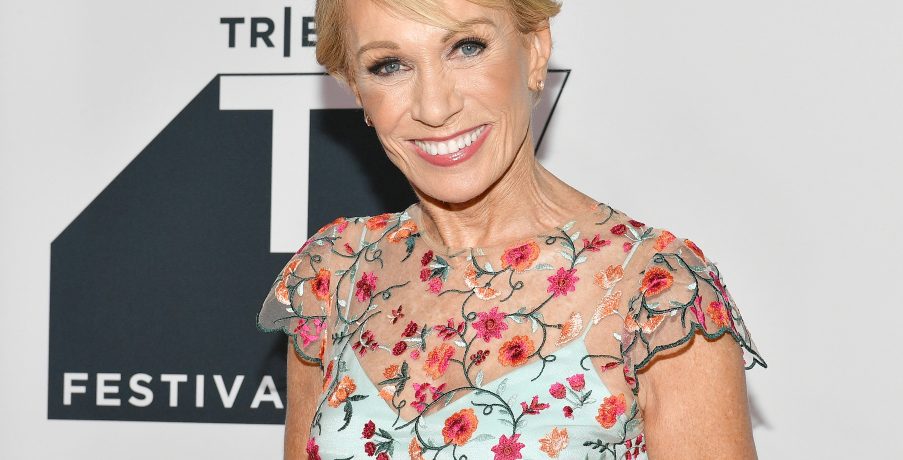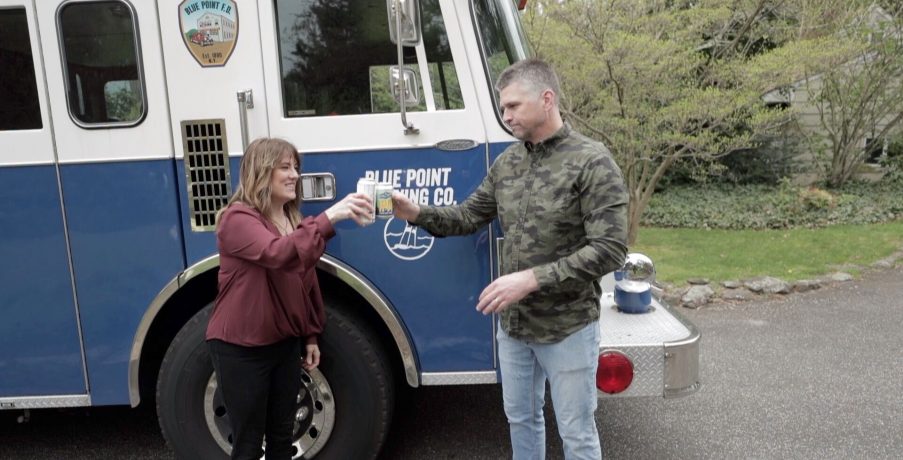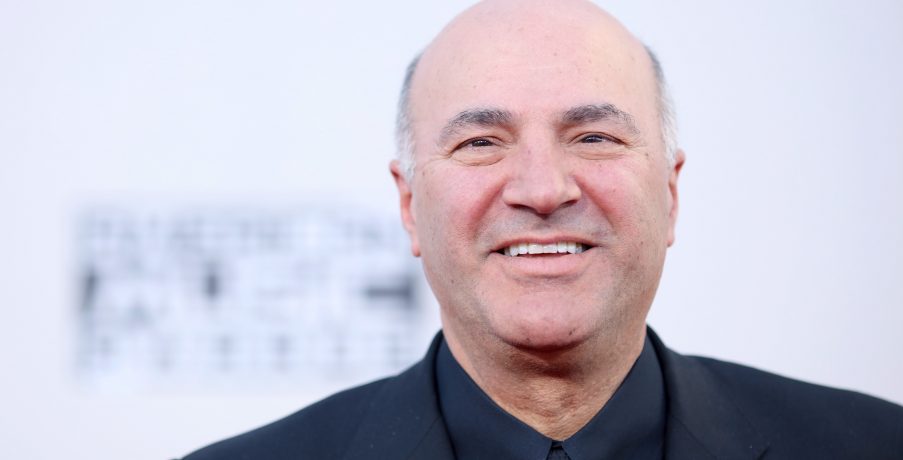
-
Barbara Corcoran Told Her ‘Shark Tank’ Companies To Reinvent To Survive
In Best Of, Entertainment, Featured, Guest, Interview, Latest, News Stories, The World, Top News, videosPost Views: 738By Neil A. Carousso
NEW YORK(WCBS 880) — Real estate mogul Barbara Corcoran says 80 percent of the businesses she has invested in on “Shark Tank” will not survive the economic crisis caused by the coronavirus pandemic.
“The minute this problem started, I said, ‘Sit down and make a list of where every piece of your business comes from, and then, make, right next to it, a list of how you can replace it cause it ain’t going to be there anymore,'” Corcoran told Joe Connolly and Neil A. Carousso of her conversations with the owners of the roughly 80 businesses she bought stake in on the hit ABC reality television program.
Corcoran said on the WCBS Small Business Spotlight, sponsored by BNB Bank, that only a few owners took her seriously when she told them to incorporate a tight team of workers into making decisions on reinventing themselves. Those that did “hit the floor running.”
She said business owners who are persistent and tenacious in their approach are the “warriors” who will survive the recession. She also emphasized communication with customers while working to actively sell current and new products and services.
“I’ve never seen a new business survive if it’s not led by a salesman,” Corcoran said, adding, “If you can’t sell your way out of a pickle, you don’t have a chance.”
She said if an entrepreneur can demonstrate he or she is a master of selling themselves and their business on “Shark Tank,” she’ll “buy anything.”
But, Barbara explained that getting on the show is not a true test of success even though it’s an arduous vetting process.
“When I’m in business with someone three months, maybe four months the most, it’s when the crap hits the fan, what do they do about it? The minute they start blaming somebody else, I know they’re a victim, they’re never going to make it,” she said.
On the flip side, Corcoran told Connolly and Carousso that those owners who take responsibility and actively look for solutions, are the successful business leaders with whom she is making profits.
She also told WCBS 880 that the model for a successful entrepreneur is their track record as a person. Overcoming failure and obstacles in life is an indication to Corcoran that she should invest in the person’s business.
“When I can spot somebody who’s been injured with something to prove, they get a burn in their chest that’s going to make them succeed if they’re hard workers,” she remarked. “I’m looking for that hustler.”
Meanwhile, with tens of millions of Americans unemployed amid the COVID-19 outbreak and business shutdowns, Corcoran is seeing a sizable shift in the real estate market with people fleeing the City for suburbs in New Jersey and Connecticut. The Corcoran Group owner says employers see their employees working efficiently at home and will cut unnecessary brick and mortar costs. U.S. office vacancy will rise from 16.8 percent to 19.4 percent by year’s end, according to Moody’s Analytics REIS estimates. Corcoran sees that as good news for tenants who have taken negotiating power from landlords.
https://www.facebook.com/NeilACarousso/videos/705347700029920/
“The value per foot has got to drop substantially for the landlord to attract tenants and he’s going to have to become a salesman,” she said.
But, Barbara is bullish on the Big Apple.
“I have such confidence in the City. I have no doubt that the City will chug like it always does. We’re just going to hesitate and push forward,” Corcoran, who has lived in New York since she was 22 years old, said, punctuating, “I think it may recover faster than we think.”
She remembers seeing how the country rallied around New York City after the September 11, 2001 terrorist attacks and the “love” Americans displayed while embracing their fellow countrymen and women. She recalled she told her Corcoran Group sales team the real estate market would get “hot within 6 months” and it did with a new crop of buyers.
“I had that deep faith that the City always recovers,” said Corcoran.
Hear innovative and actionable ideas from Barbara Corcoran for business survival with examples from “Shark Tank” on the WCBS Small Business Spotlight Podcast on the RADIO.COM app or on the media player above.
-
‘Shark Tank’ Star Daymond John Reveals Creative Business Solutions To Survive Coronavirus Pandemic
In Best Of, Entertainment, Featured, Guest, Interview, Latest, News Stories, Technology, The World, Top News, videosPost Views: 768By Neil A. Carousso
NEW YORK (WCBS 880) – Entrepreneur Daymond John, an investor on ABC’s “Shark Tank,” is encouraging his businesses to think outside the box to survive the economic crisis caused by the COVID-19 outbreak.
“Once you know what you have with your staff and what you have with your inventory, find out who else out there you can collaborate with,” John told Joe Connolly and Neil A. Carousso on the WCBS Small Business Spotlight focusing on small business survival, sponsored by BNB Bank.
The FUBU founder and bestselling author of “Power Shift: Transform Any Situation, Close Any Deal and Achieve any Outcome” pointed to Cowboy Fitness, based in Utah and Colorado, which he invested in on season 4 of “Shark Tank,” as an example of how business owners should pivot.
“They basically loaned (their members) the equipment, and then, now, he does video conferences, kind of like a Peloton,” John said, adding that Cowboy Fitness retained most of its members by creating a new service.
They have also secured partnerships with local stores that are shuttered and suffering from the lack of foot traffic. The retailers sell athletic apparel to its gym members at a 30 percent discount. In turn, Cowboy Fitness earns 5 percent on each sale. John calls this a “win-win” solution.
The 51-year-old businessman says technological advancements have been implemented much faster because of the coronavirus pandemic, forcing companies to develop new efficiencies and work-from-home policies. The fashion brand expert says traditional retail will not be able to bounce back without making vast changes to its business model.
“If I had Macy’s, one of the most famous and iconic retailers in the world, I would have cameras in there that are showing people’s style or various other things that people can feel like they can go in there because they’re an influencer,” John said, emphasizing, “They have to really make sure they become more of an events space than anything else.”
At The Shark Group, which he founded in 2009, John advises businesses on product awareness and developing genuine, innovative approaches to grow brands. One of the companies he works with is Bombas, a sock company founded by Dave Heath, whose core mission is to donate one pair of socks to the homeless community for every pair bought.
.@TheSharkDaymond tells @JoeConnollybiz and me he looks to invest in companies on @ABCSharkTank that “add value” to the communities they serve like @BOMBAS. #SharkTank #branding
More with Daymond on the @WCBS880 Small Business Spotlight Podcast: https://t.co/oYPQxdqcka pic.twitter.com/w2mCxr2vUj
— Neil A. Carousso (@NeilACarousso) May 13, 2020
“The millennials today, and people today, they want to say I didn’t give one time at the end of the year, I gave 400 times,” John explained. “How do you find ways to add more value to the person and barter in your deals?”
That’s what he is looking for on “Shark Tank:” Companies that are not only making money, but also demonstrate authenticity and passion for the communities they serve.
“I’m trying to find out if I like the entrepreneur personally, if I feel that I could communicate with them, I could add value to them, they’re a problem solver not a problem creator and whether this business works out or not, we’ll do another business together,” he said.
John took Connolly and Carousso behind the scenes of the reality TV show, telling WCBS 880 that the Sharks are competitive and the negotiating among the millionaires and billionaires is “real.”
“You don’t want to get embarrassed on national television by Mark Cuban or Barbara (Corcoran) beating you out in front of everybody,” John said.
He revealed “Shark Tank” pitches can last up to two hours, but viewers only see 8 minutes. Finalizing deals can last months after the taping as the Sharks vet businesses carefully before writing a check out of their own bank accounts.
When asked if he believes entrepreneurs are born or made, the Queens native said it’s “instinct,” elaborating that people are often discouraged from starting their own businesses because of difficulty or the dismissive attitude that it’s “never been done before.” But, John had already started a few businesses before he was 18 when he launched FUBU, now worth about $400 million, out of his home in Hollis.
While driving around Queens, his mother, Margot, encouraged him to follow his dreams. She said, as John recalled, “Every single thing around here started with one person that had one idea that took one action. Why can that not be you?”
“I started by selling hats on the corner in 1989 and I had sold $800 worth of hats in one hour,” he said of his first designed ski caps that he made by hand. “I just had to sow a straight line to really figure out how to make these hats.”
He closed that business three times between 1989 and 1992 because he ran out of money. But, his shirts became popular, in part, because he loaned them to local artists on the rise who wore FUBU T-shirts in music videos.
John’s mother took him to trade shows around the country where he earned hundreds of thousands of dollars in sales. But, he needed inventory. As an inexperienced young businessman, he was unable to secure a loan from a bank, so Margot took out a $100,000 loan on her house that John said was only worth $75,000.
“I sell all the furniture in my house, move in industrial sowing machines, sleep in sleeping bags next to the sowing machines,” he said of his hustle.
He also worked at Red Lobster at night to make money to invest into his dream clothing business that he operated during the day.
John said he bought an advertisement in The New York Times or New York Daily News seeking investors to provide the funding he needed to fill orders and move FUBU out of his home in Hollis.
“Thirty-three people called. 30 of them were loan sharks or Kevin O’Leary-type of people,” his fellow “Shark Tank” star quipped. “One of them was Samsung’s textile division.”
They signed a deal for Samsung to take over manufacturing, reducing costs, and John learned a lesson in business he would later impart on others while living the American Dream.
-
WCBS Newsradio 880 Wins 2 Regional Edward R. Murrow Awards
Post Views: 1,098NEW YORK (WCBS 880) — The Radio Television Digital News Association announced Tuesday that WCBS Newsradio 880 is the winner of two 2020 regional Edward R. Murrow Awards.
WCBS Newsradio 880 was awarded Overall Excellence in the large market radio division as well as Excellence in Video for reporter Mike Sugerman’s “Sweet Spot” feature about a Greenwich Village man who has been making guitars out of old wood from New York City buildings for the past 50 years.
The RTDNA has been honoring outstanding achievements in broadcast and digital journalism with the annual Edward R. Murrow Awards since 1971.
Murrow was a journalism pioneer who set the standards for the highest quality of broadcast journalism.
“Murrow Award-winning journalism upholds the guiding principles of RTDNA’s Code of Ethics: truth, accuracy, fairness, context, independence, transparency and accountability for consequences,” said RTDNA Chairman Terence Shepherd. “Displaying technical excellence, creativity and innovation, this year’s winners have empowered audiences across the country to make more informed decisions for themselves and to become closer to their communities.”
“The regional RTDNA Edward R. Murrow Award recipients we announce today are doing an exemplary job of serving their communities by seeking and reporting the truth, raising issues that often serve as catalysts for positive change in their viewing and listening areas,” said Dan Shelley, RTDNA Executive Director and Chief Operating Officer. “I couldn’t be more proud of the high quality of responsible journalism as evidenced by these winners.”
For a full list of winners, CLICK HERE. All regional winners will advance to the National Murrow Award competition.
-
Blue Point Rewards Workers With Raises, Toasts Local Heroes As Brand Pivots To Survive
Post Views: 818By Neil A. Carousso
NEW YORK (WCBS 880) – Blue Point Brewing Company is raising a glass in honor of its essential workers and those on the frontlines of the coronavirus pandemic while it adjusts to new operations it has been thrust into amid the shutdown of hospitality businesses.
Mark Burford, founder of the Patchogue-based craft beer brand, says his company has always been about spreading cheer.
“Even when things are as tough as they are, it’s our job, internally, to bring fun and joy and we try not to lose track of that at any time,” he said on the WCBS Small Business Spotlight focusing on small business survival, sponsored by BNB Bank.
Like most companies, Blue Point is facing the reality of a changed workforce. Employees who can perform their job functions remotely are working from home. Meanwhile, social distancing has been implemented among essential workers at its brick and mortar location for those who manufacture beer. They are so busy that employees are working around the clock. Burford is staggering shifts to sanitize all equipment at its brewery.
“Everybody was given a 10 percent pay raise,” he said of his essential workers. “There’s just nothing really more important than the safety and health of the employees, so take care of people first, and then, as we slowly come back from this, we’ll see if we really ever get to where we were where everybody had to come in every day in the building.”
Blue Point is also giving away beer and food to deserving members of communities on Long Island every week as part of its social media campaign “Toast Your Hero.” They arrive to the winners’ homes or workplaces in style in a blue-pained fire truck they purchased last summer from the Blue Point Fire Department.
“It just puts a smile on everybody’s face,” Burford said, adding, “It’s just a fun thing and we all need a little bit of that levity right now.”
Customers can also buy a meal for just $8 to be delivered without contact to frontline workers from the Blue Point restaurant at its brewery in Patchogue.
He also donated beer kegs to local distilleries.
“There’s one in Patchogue called Better Man Distillery and they changed that beer that would have gone out of code and gone bad and they turned it into hand sanitizer,” Burford said.
His philosophy is simple: Do good for others and good fortunate will return.
“There’s a lot of different ways and avenues that you can help positively impact the situation,” said the brewmaster.
Blue Point’s shipping time to national suppliers has slowed slightly and orders have slumped due to restaurant closures, but local business has been “tremendous” as it serves Long Island heroes of the COVID-19 crisis.
New York State relaxed its alcohol laws to permit delivery, which has opened the door to a new business model.
“It makes you think about what other long-standing rules and regulations that typically would not be able to be changed, but in this scenario could be changed, Burford said, offering, “For other business people out there, even if there’s stuff that you never thought of that might be eliminated or changed, now’s the time to look for that.”
Hear how Blue Point is developing long-term solutions to a changed world plus Burford’s advice for other hospitality business owners on the WCBS Small Business Spotlight Podcast above and on the RADIO.COM app.
-
‘Shark Tank’ Investor Kevin O’Leary Shares His Keys To Small Business Survival
In Best Of, Featured, Guest, Interview, Latest, News Stories, Technology, The World, Top News, videosPost Views: 995By Neil A. Carousso
NEW YORK (WCBS 880) – Entrepreneur Kevin O’Leary stresses communication and a pivot to digital sales during the “unprecedented” coronavirus pandemic.
“Learn to communicate,” O’Leary advised in a wide-ranging interview with Joe Connolly on the WCBS Small Business Spotlight, sponsored by BNB Bank.
“Your employees and your customers: They want to hear from you every day,” he said.
O’Leary is known as “Mr. Wonderful” on ABC’s hit Friday night reality TV program “Shark Tank.” He is also a contributor to CNBC that re-runs episodes of “Shark Tank” when the market is closed. In 1986, he founded Softkey, an educational software company based in Toronto, that he sold to Mattel for $4.2 billion in 1999. He owns O’Leary Financial Group, which is a conglomerate of brands that includes investment firm O’Leary Funds. He also owns O’Leary Fine Wines. His net worth is estimated at $400 million.
“When you’re honest with your customers, they become incredibly loyal,” O’Leary said, adding, “The minute they smell B.S., you’ve lost them forever. Don’t lie to people.”
He shares his philosophy on business with Connolly, including that owners should become profitable by their third year in operations, or “take it behind the barn and shoot it.” During the global health crisis, O’Leary says owners must adjust to the changing market while playing to one’s strengths.
“They genuinely care about companies and products and services that they’ve grown to trust and they want to support them during this period of difficulty to make sure that these businesses survive,” he said.
One way to stay afloat, O’Leary underscored, is to learn digital marketing and focus one’s energy on targeting local customers.
“It means you may have to get a Shopify license, you may have to learn how to use DocuSign, you may have to understand the geo-locking tools of Facebook,” Mr. Wonderful said on the WCBS Small Business Spotlight Podcast.
“Geo-locking” is a tool within paid Facebook campaigns that allows users to target a preferred audience to optimize a paid post’s impact by demographics.
“I only want to spend my advertising dollars, reaching out to people in this specific area,” O’Leary explained, adding, “That’s what we’re finding is really working, being very concentrated in what you’re trying to do, because in times like these, you really want to play to your strengths.”
O’Leary told WCBS 880 he’s looking to cut real estate costs as his employees work from home. He said if employees are being productive and companies are using digital conferencing services and maximizing on digital marketing strategy, businesses can “save a ton of money.”
“Now the only thing is, it’s not good news for rates, it’s not good news for landlords, it’s not good news for retail space, it’s not good news for real estate, generally, because we don’t need it. Yeah, we need our houses and our apartments, but nothing else,” said Mr. Wonderful.
Hear more from entrepreneur Kevin O’Leary, including what opportunities he spotted in his “Shark Tank” investments, on the WCBS Small Business Spotlight Podcast above and on the RADIO.COM app.
Best Of
Social Feeds

VIDEO: Told the airline to book us on the next flight out (SPONTANEOUS TRIP!)

VIDEO: The Taylor Swift Effect | WCBS Business Breakfast

VIDEO: Future of NYC | WCBS Business Breakfast

VIDEO: Reasons for New Yorkers to be Optimistic | WCBS Business Breakfast

VIDEO: NYC's AI Chatbot | WCBS Business Breakfast






